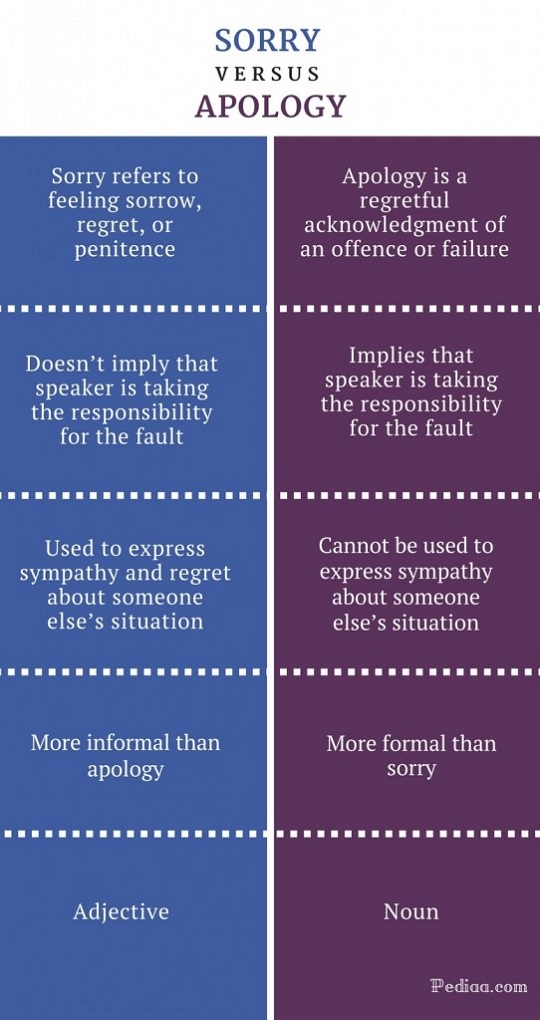Apology (authentic self-reflection and part of EI)
Most people find apologies hard to execute, as they make you feel uncomfortable, ie
"...they make us feel vulnerable; people see our imperfections or they may be used against us. If you admit where you blew it then that could be thrown back in your face later. Or worse still, your apology may rejected......as the receiver might not be ready to acknowledge or receive it......This uncertainty gives the apology such power and impact..."
Georgia Murch, 2022b
To apologise is a courageous act as it is admitting that you were wrong, ie owning up to your mistake, and there is usually uncertainty how the other party will react; it could make things worse.
An apology can be defined as
"...a regretful acknowledgement of an offence or failure..."
Hasa, 2016
It can be seen as a
"...willingness to value the relationship more than the need to be right..."
John Kador as quoted by Georgia Murch, 2022b
To be willing to apologise means that you are putting your ego to one side, ie admitting that you are not always right. This can be hard for people who like to win all the time.
However, the apology can be seen as a way of having the last word!!!!!
Recently the perception of apology practice has been changing; it is no longer seen as a sign of weakness:
"...Apology is now a great sign of leadership. Leaders model accountability, transparency and humility..."
Georgia Murch, 2022b
Apology is now part of 'authentic self-reflection' as a way of building trust and respect by you owning your words and actions so that you are honest about your mistakes. It is a proactive step forward in building the right relationships.
"... Apologies matter.....they are like superglue for relationships to mend and grow together. Saying sorry, coated in authenticity, shows vulnerability, a lack of ego and kindness..."
Georgia Murch, 2022b
Sorry vs Apology
There is a difference between saying sorry and apologising. ie
"...saying sorry simply expresses your personal feelings about something. Apologising implies that you accept the responsibility of the fault or mistake as well as expressing your regret about it..."
Hasa, 2016

(source: Hasa, 2016)
